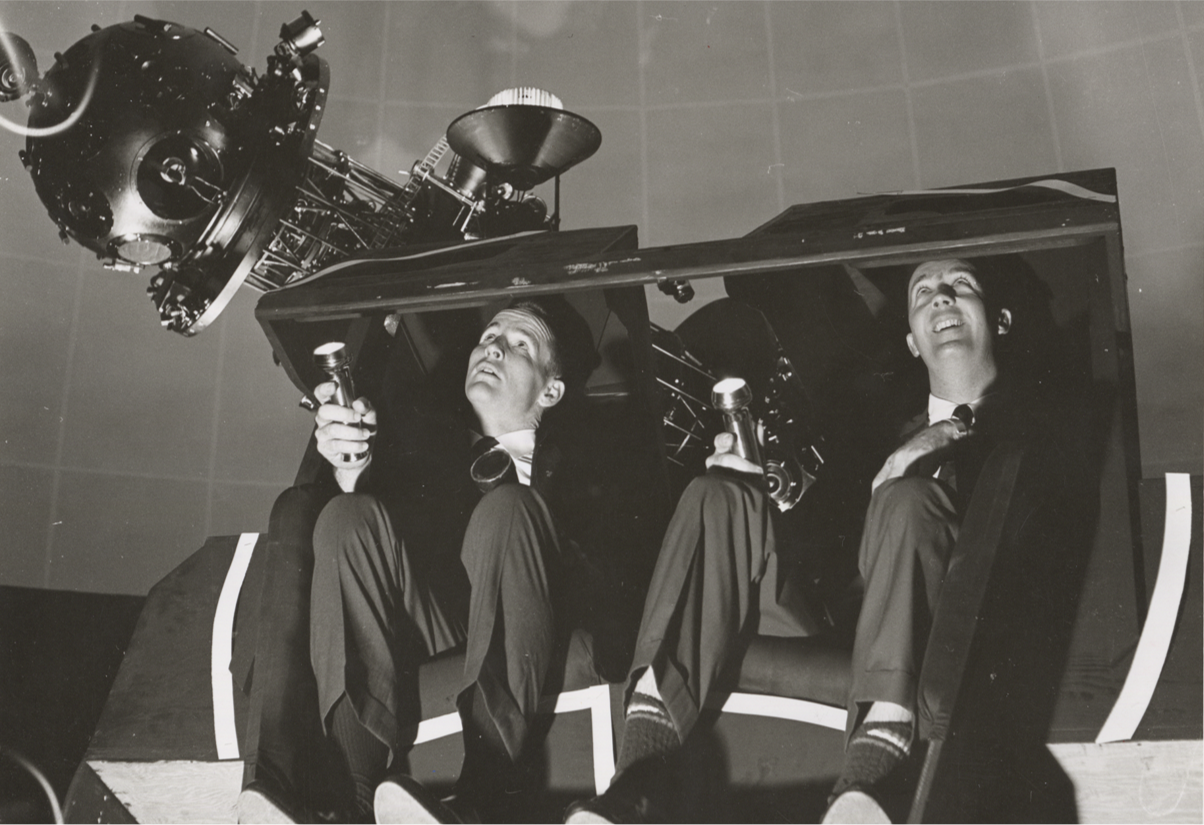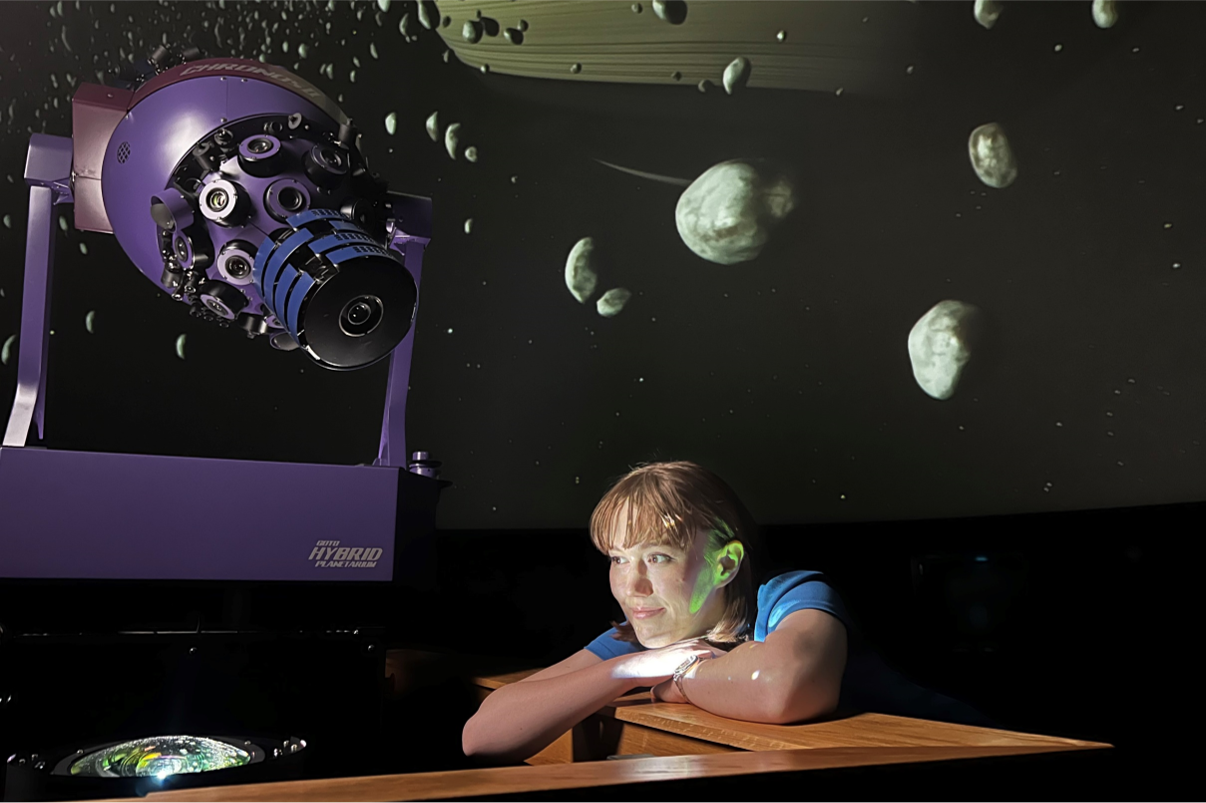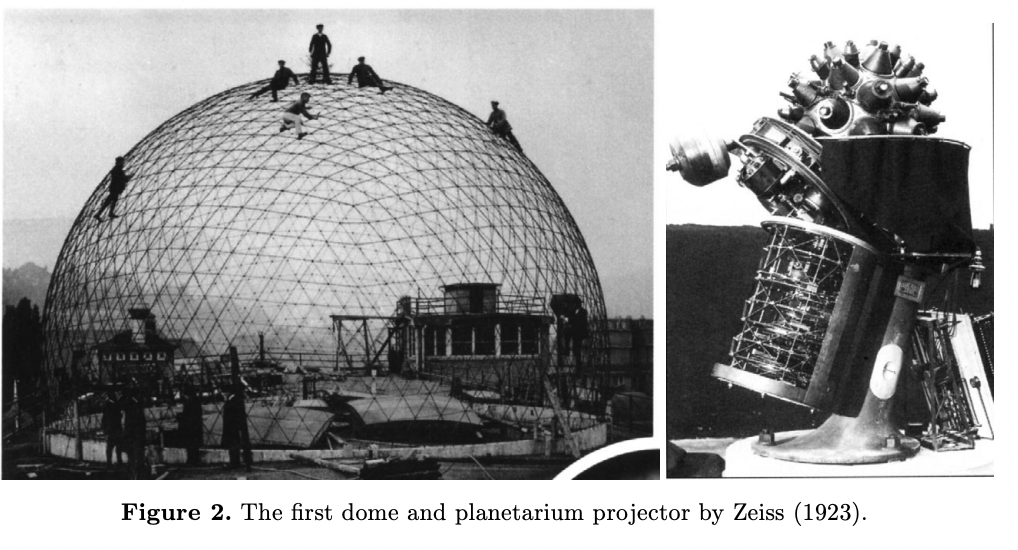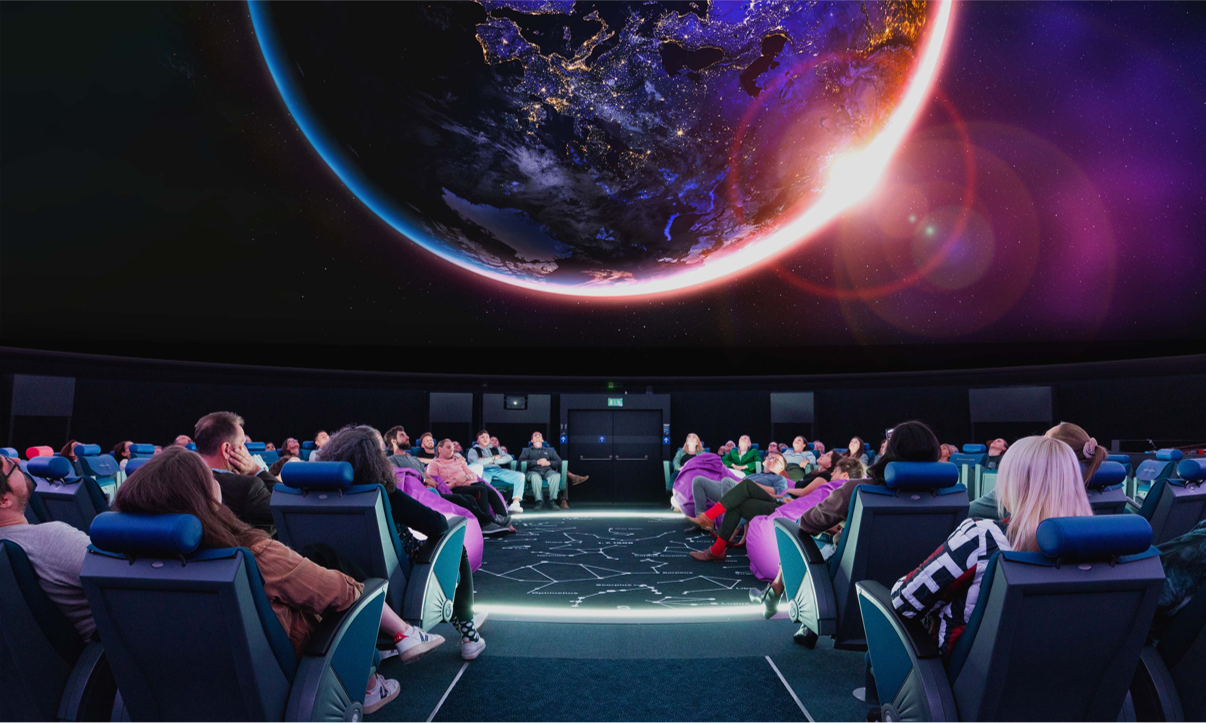Introduction
Over the last century, as cities have expanded, 80% of people on Earth have lost their access to truly dark night skies. During the same time, thousands of planetariums have sprung up across the globe, providing over 1 billion people a pristine, pitch-black window into the cosmos. As the marvelous planetarium projector turns 100 in 2023, the UWM Planetarium is launching the Year of Space to celebrate, with space-themed events happening across the UWM campus during the 2023-24 school year–including a visit from Mae Jemison, the first African American woman in space; two solar eclipses; a space-themed Union Art Gallery exhibit; and so much more.
Events
History
Planetariums like ours have been projecting the stars and planets onto domes worldwide ever since the first planetarium projector was installed in the Deutsches Museum in Munich in 1923. Like time machines, these projectors can show the sky at different times and places. Since its premiere on the world stage, the planetarium projector has inspired audiences as they identify constellations, see patterns of celestial motions, and find answers to questions like what causes the phases of the Moon.




There are other reasons to celebrate space this year, whether it’s the new and exciting otherworldly images coming from the James Webb Space Telescope, the search for life on Mars and the moons of Jupiter and Saturn, or NASA’s Artemis program to land the first woman and the first person of color on the Moon. The 2023–24 school year also includes not one—but two!—partial solar eclipses. UWM is part of this timely focus on space: several Physics faculty, staff, and students play an essential role in the North American Nanohertz Observatory for Gravitational Waves (NANOGrav), which recently announced the detection of gravitational waves from supermassive black holes.
Outer space continues to fascinate the world, and the vital role played by planetariums will continue for the next hundred years. As urban populations grow, reconnecting to the cosmos and our place in it will be crucial. Regardless of where we live on Earth, we share one sky and one precious planet. This universal connection is undoubtedly a cause for celebration.
Follow Along With Us!
Receive Our Newsletter
Follow Us On Social Media
Become a Planetarium Member
Support what we do by becoming a UWM Planetarium member! For as little as $15, you can help us continue sharing the wonders of the cosmos with the community.
Members get free access to planetarium events and exclusive programs. Memberships last for one (1) year from the date on which you enroll.
Support What We Do
Your gift of any size makes a difference in helping us:
- ensure that our programs are affordable and accessible to all
- enable undergraduate students to apply their skills in real-world situations
- empower us to deliver live, high-quality programs on a variety of topics
- advance public knowledge of astronomy’s scientific and cultural connections
- allow us to plan special events, such as the 100th anniversary of the first planetarium




